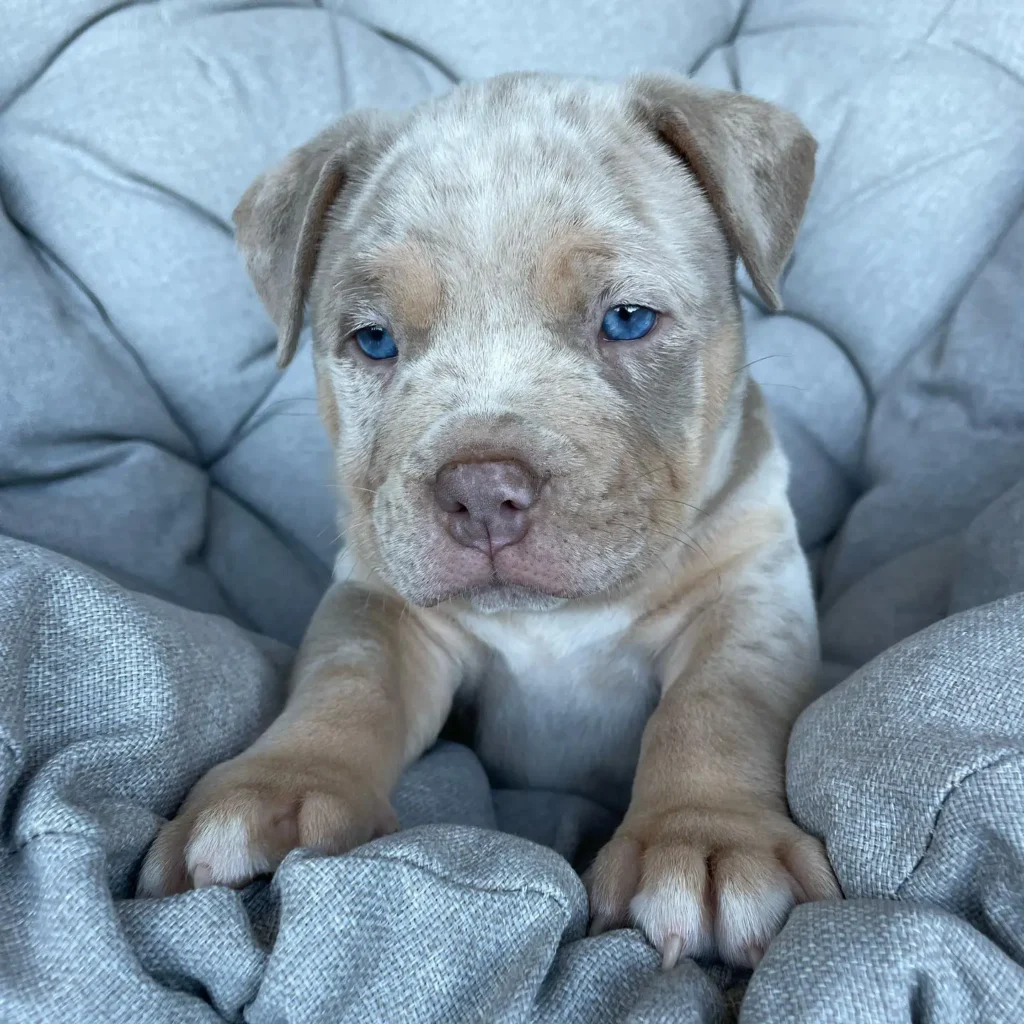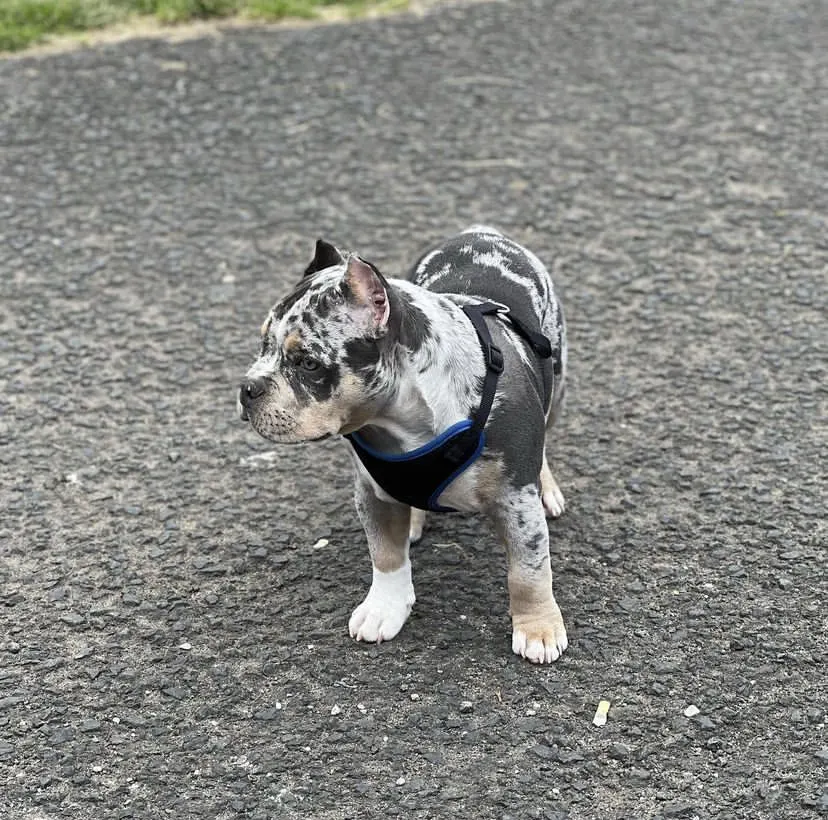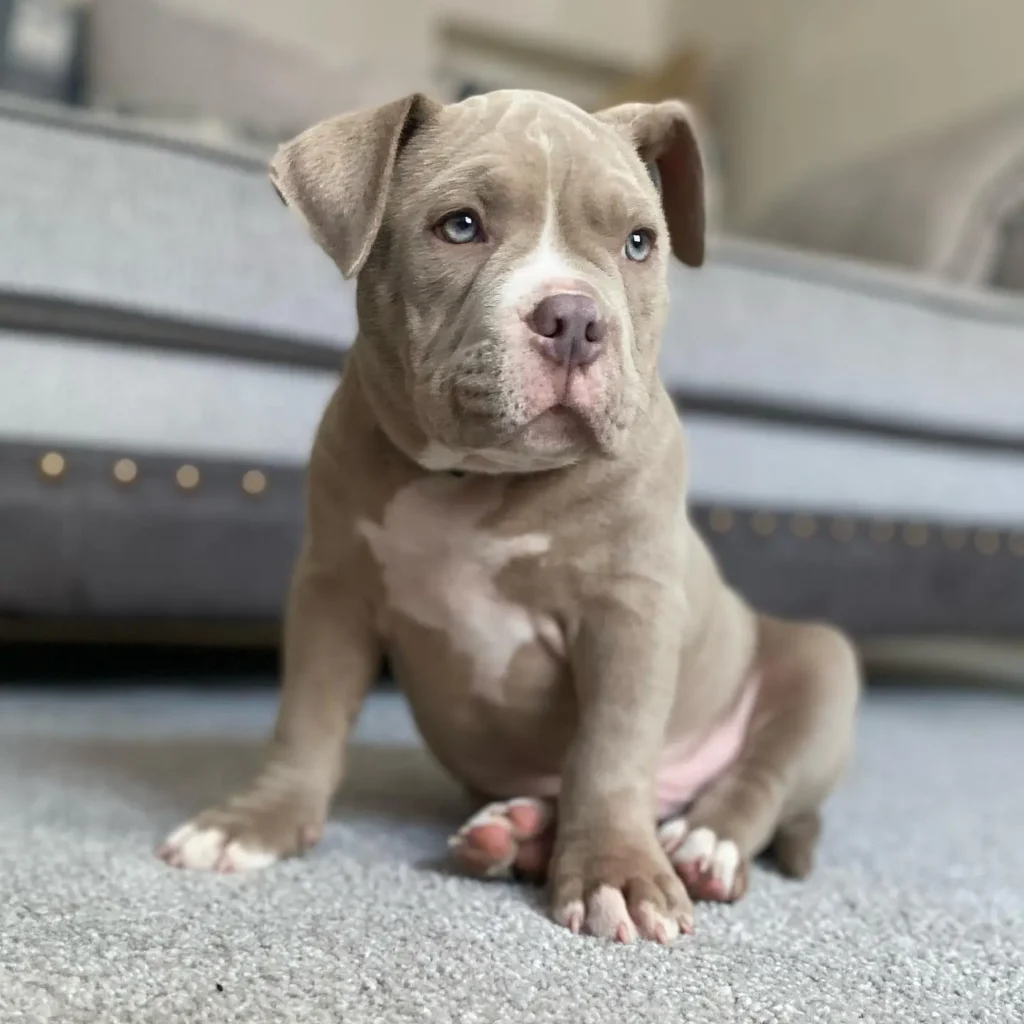Pocket bullies for sale
The Pocket Bully is a small yet muscular breed that has gained popularity for its compact size, affectionate nature, and strong build. As a variation of the American Bully, the Pocket Bully retains the breed’s loyal, friendly, and confident personality, making it an excellent choice for families and dog lovers who want a protective but manageable-sized companion.
If you’re considering a Pocket Bully, this guide will help you understand its history, temperament, care requirements, and where to find one.
What is a Pocket Bully?
The Pocket Bully is a smaller version of the American Bully, specifically bred to maintain the muscular and stocky appearance of the breed while being shorter and more compact.
✔ Height: Typically 13–17 inches (33–43 cm) at the shoulder
✔ Weight: Around 30–60 pounds (13–27 kg)
✔ Lifespan: 10–13 years with proper care
✔ Coat: Short, smooth, and low-maintenance
✔ Build: Muscular, stocky, and athletic
Despite their tough appearance, Pocket Bullies are affectionate, playful, and great family pets.
Temperament and Personality
Despite their muscular frame, Pocket Bullies are loving, social, and friendly dogs.
✔ Loyal & Protective – They form strong bonds with their families and are naturally protective.
✔ Affectionate – Pocket Bullies love human interaction and enjoy cuddling with their owners.
✔ Great with Kids – They are patient and gentle, making them excellent family pets.
✔ Confident & Playful – They have a fun, energetic personality and love playing outdoors.
✔ Social with Proper Training – Early socialization helps them get along well with other pets and people.
Unlike aggressive breeds, Pocket Bullies are known for their stable and friendly temperament, making them great companions for families and individuals alike.
Training and Socialization
Since Pocket Bullies are intelligent and eager to please, training them can be an enjoyable experience. However, they require consistent and firm leadership.
✔ Start Early: Begin training and socialization at 8-10 weeks old.
✔ Positive Reinforcement: Use treats, praise, and toys to encourage good behavior.
✔ Socialization: Expose them to different environments, people, and pets to prevent shyness or aggression.
✔ Leash Training: Since they are muscular and strong, proper leash training is essential.
✔ Basic Commands: Teach commands like sit, stay, come, and leave it to ensure control in public spaces.
A well-trained Pocket Bully is a well-behaved, friendly, and confident companion.
Exercise and Activity Needs
Although Pocket Bullies are smaller than their larger counterparts, they still require regular exercise to stay healthy and happy.
✔ Daily Walks: At least 30–60 minutes of walking per day.
✔ Playtime: Interactive play sessions like fetch, tug-of-war, or agility training.
✔ Mental Stimulation: Puzzle toys and obedience training help prevent boredom.
Since they have moderate energy levels, Pocket Bullies adapt well to both apartments and homes with yards—as long as they get daily exercise.
Feeding and Nutrition
A balanced diet is essential for muscle growth and overall health.
✔ High-Protein Diet: Look for dog food with at least 20-30% protein.
✔ Healthy Fats: Omega-3 and Omega-6 help maintain a shiny coat and healthy skin.
✔ Avoid Overfeeding: Pocket Bullies can gain weight quickly, leading to obesity.
✔ Fresh Water: Always provide clean drinking water to keep them hydrated.
Consult your vet to determine the right portion sizes based on your dog’s age, weight, and activity level.
Grooming and Care
Pocket Bullies are low-maintenance when it comes to grooming.
✔ Brushing: Once a week to remove loose hair.
✔ Bathing: Only when necessary (once a month or if dirty).
✔ Ear Cleaning: Check weekly to prevent infections.
✔ Teeth Brushing: 2-3 times a week to maintain dental health.
✔ Nail Trimming: Every 3-4 weeks to prevent overgrowth.
Since Pocket Bullies have short coats, they are sensitive to extreme cold or heat, so avoid long exposure to harsh weather.
Common Health Issues
Pocket Bullies are generally healthy, but like all breeds, they can be prone to certain health conditions:
✔ Hip Dysplasia – A common issue in muscular breeds.
✔ Brachycephalic Syndrome – Some may have short snouts, leading to breathing difficulties.
✔ Allergies – Skin allergies are common, so use hypoallergenic dog food if necessary.
✔ Obesity – Watch their diet to prevent excessive weight gain.
Regular vet check-ups and a healthy lifestyle help prevent these issues.
Are Pocket Bullies Right for You?
Pocket Bullies are best suited for:
✔ Families looking for a friendly, protective dog
✔ Individuals who want a muscular but compact companion
✔ Apartment dwellers (if daily exercise is provided)
✔ Owners who are committed to training and socialization
If you are looking for a loyal, loving, and compact-sized companion, the Pocket Bully is a perfect choice!
Final Thoughts
Pocket Bullies are small in size but big in personality. They are loyal, affectionate, and protective, making them amazing companions for the right owner. With proper training, exercise, and love, a Pocket Bully can be a lifelong friend and protector.
Are you thinking about getting a Pocket Bully? Let me know if you need breeder recommendations or training tips! 🐶





